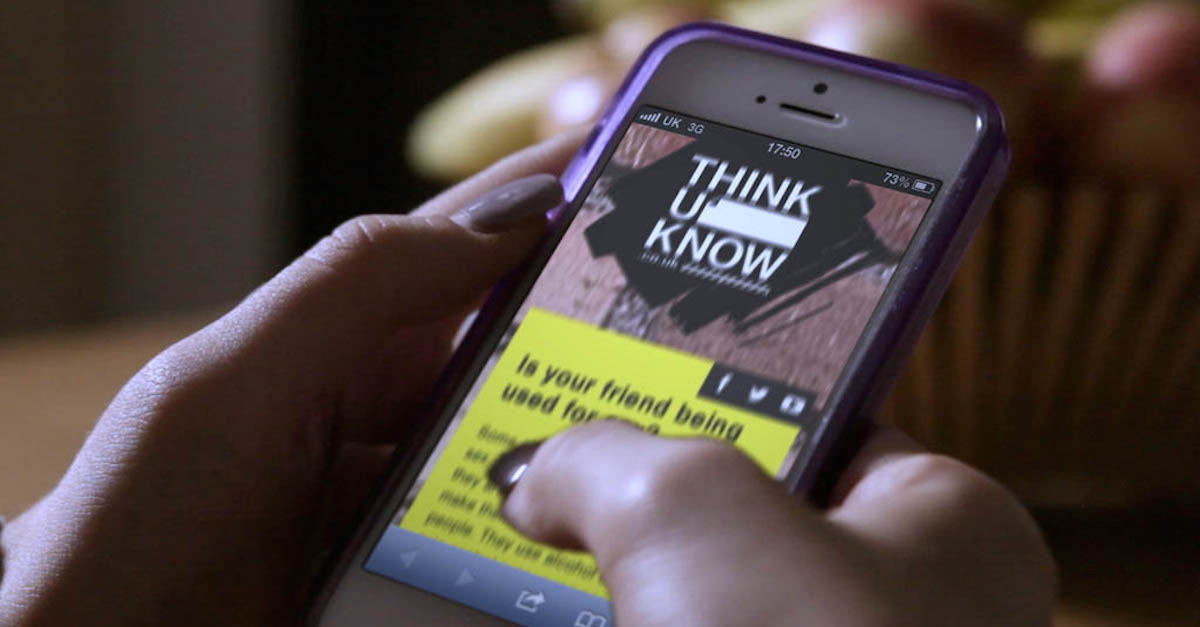
What do you tell a 12-year-old who’s being cyber-bullied?
A 15-year-old girl sends naked pics to her boyfriend, only to find out the next morning that everyone in school has seen them.
What should she do? Where can she get help?
Those are only a few of the myriad scenarios in which kids of various ages find themselves pressured online, be it from peers or predators, with often dire consequences.
Alarmingly, one of those potentially hazardous situations – sexting, with the invasion of privacy it so often brings – has become normalised in children’s lives.
According to a 2013 poll of 500 children conducted by online safety centre ChildLine, 60% had been asked to send a sexual image or video.
Of those polled, 38% had complied.
The UK National Crime Agency’s centre for tackling abuse, Child Exploitation and Online Protection Command (CEOP), recently warned that police and child protection experts are dealing with at least one case every day of children being ensnared in serious cases of sexting, including grooming attempts by paedophiles.
It’s vitally important that parents and other adults figure out how to teach children of different ages how to stay safe online.
CEOP has launched a campaign to help.
The campaign, dubbed Thinkuknow, offers the latest information on popular sites, mobile phones and new technology to let the public know what’s good, what’s not and what you can do about it.
For those who look after young people, the site offers resources for use in the classroom or at home, as well as a place that anyone can use to report if they feel uncomfortable or worried about someone they’re chatting with online.
The materials are arranged to make it easy to choose age-appropriate training and resources for kids starting at age 5.
It also features material designed for teachers or trainers, as well as for parents or caregivers.
For children ages 5-7
CEOP offers two animated films that teach 5 to 7-year-olds how to go on the internet in a safe way.
The four big takeaways for that age group:
- People you don’t know are strangers. They’re not always who they say they are.
There are so many cases where imposters have targeted kids, such as the paedophile who posed as Justin Bieber, or the 22-year-old from New Jersey who posed as a teenager to stalk girls online. Such frightening news articles are for grown-ups, of course, whereas CEOP’s campaign tackles the issue in a far less frightening way. - Be nice to people on the computer like you would in the playground.
Amen to that! After all, being a cowardly, venomous troll is now actually illegal in the UK. - Keep your personal information private.
Parents, this goes for you, too. As The Parent Zone revealed recently, the average parent is uploading an eyeball-popping 973 photos of their child on social media by the time he or she reaches the age of 5, and many of those parents don’t first check their privacy settings. Don’t be one of them! - If you ever get that “uh oh” feeling, you should tell a grownup you trust. I like the wording in CEOP’s “Superhero Sid” music video more: “If you get butterflies in your tum, always remember to tell someone!”
For young people over the age of 7
Thinkuknow offers a chat line, advice, an internet café, games and more for older kids.
Some examples of the online places and problems that CEOP helps kids to navigate:
Gaming
It might seem like kids have something in common with the people they’re playing online with, but paedophiles or extortionists leverage that notion to gain trust and try to get something – for example, maybe they’ll offer game “cheats” and then want something in exchange, such as nude photos or sexual webcam performances.
Predators can also share a link that could turn out to be a malware, including spyware. CEOP’s important advice, not just for kids but for all of us: Make sure not to click on links from people you don’t know!
Bullying
CEOP has tools to help kids fight back. In fact, one video shows how a kid fought bullies who called him “soft.” The video makes clear that kids aren’t “soft” if they tell somebody. It’s the bullies who are the sad ones, not the people they pick on. CEOP’s advice for kids: Don’t take their bullying – speak out!
Digital footprints
CEOP has a great video that makes clear how easy it is to stalk somebody, given how much of a digital footprint we leave by, for example, neglecting to password-protect our accounts or having our loved ones post information about us.
Some tips:
- Kids (and all of us!) should mind their privacy by checking privacy settings.
- It’s never too late to take control if you’ve posted something and come to regret it. Learn how to remove postings on the various sites, and know how to report it if somebody else has done the posting.
- Regularly run a search on yourself to get an idea of what other people can find out about you, as well as things others might have posted about you.
CEOP’s site has a plethora of resources beyond this, and its campaign is a welcome addition to all the services out there designed to keep kids safe and provide help for teachers, trainers, parents and caregivers.
Remember: if you’re in the UK, if you or someone you know is in trouble, you can contact Lifeline on 0808 808 8000 or visit their website, or ChildLine on 0800 1111 or visit their website.
Naked Security also has these 10 tips to help keep your kids and teens safe online.
Also, check out our list of apps and websites that parents should be aware of.
Image of Thinkuknow on a phone courtesy of CEOP and www.thinkuknow.co.uk
